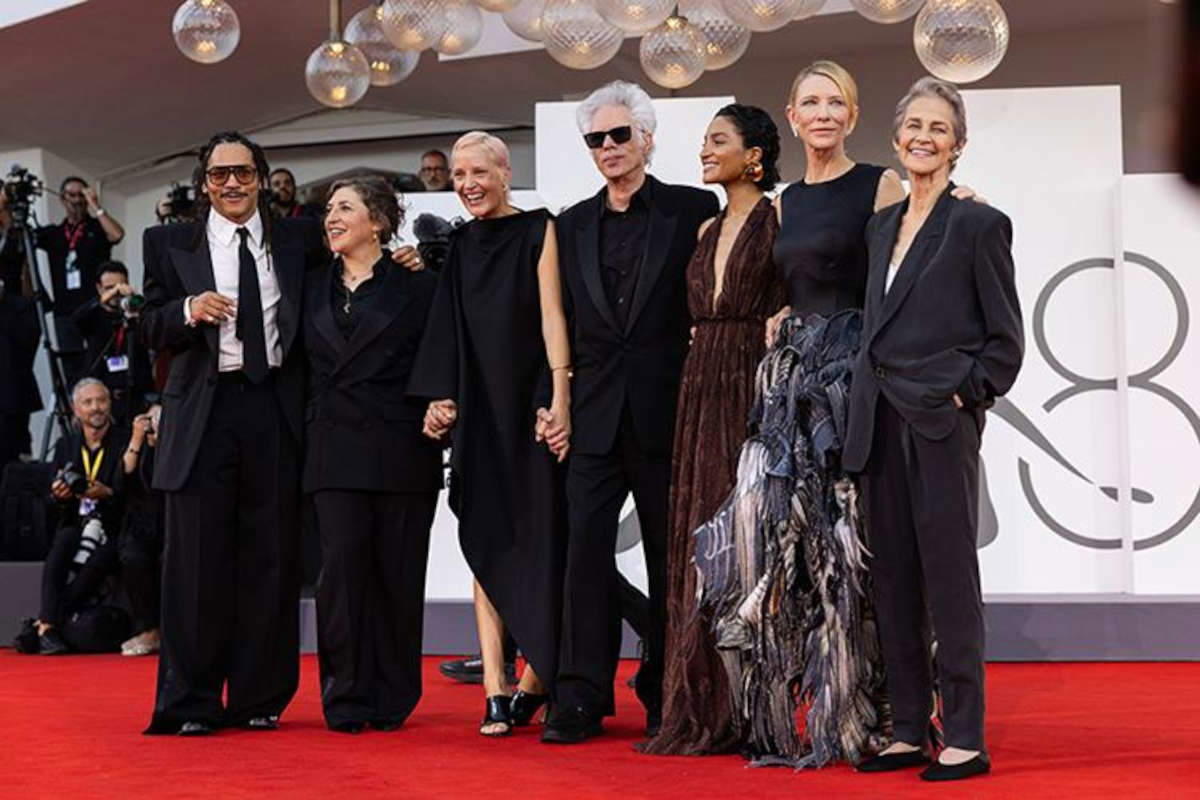The 82nd Venice International Film Festival closed with the awarding of the official prizes, which once again confirmed the festival’s role as a showcase of excellence for world cinema. The main jury, chaired by U.S. director Alexander Payne and composed of Stéphane Brizé, Maura Delpero, Cristian Mungiu, Mohammad Rasoulof, Fernanda Torres, and Zhao Tao, viewed the 21 films in competition and decreed the winners.
The Golden Lion for best film was awarded to Father Mother Sister Brother by Jim Jarmusch, a co-production between the United States, Ireland and France. The American director, already the author of works that have marked the history of independent cinema, conquered Venice with a film about family dynamics that the jury deemed worthy of the highest award.
The Grand Jury Prize, Silver Lion, went to The Voice of Hind Rajab by Tunisian director Kaouther Ben Hania, an authoress capable of interweaving civil commitment and formal research, confirming her role as a protagonist on the international film scene. Also among the most prestigious awards, the Silver Lion for Best Director was awarded to Benny Safdie for The Smashing Machine, a U.S. production that highlighted the original gaze of an author already known to audiences for his work paired with his brother Josh.

The Volpi Cups for performances confirmed the festival’s focus on the talent of actors. For best female performance, the award went to Xin Zhilei, star of the Chinese film Ri Gua Zhong Tian (The Sun Rises on Us All) directed by Cai Shangjun. The best male performance, on the other hand, was that of Toni Servillo, who in Paolo Sorrentino’s La Grazia once again offered a top-notch performance, confirming the solidity of his artistic collaboration with the Neapolitan director.
The award for best screenplay went to Valérie Donzelli and Gilles Marchand for À Pied d’Œuvre, a film directed by Donzelli herself and produced in France. The screenplay, deemed capable of blending narrative rigor and emotional sensitivity, was among the most appreciated elements of the competition. The jury also decided to award a Special Prize to Sotto le nuvole by Gianfranco Rosi, an Italian director who had won the Golden Lion in Venice in 2013 with Sacro GRA and who here returns to prominence with a work of strong visual and political impact. The Marcello Mastroianni Prize, reserved for an emerging young actor or actress, went to Luna Wedler, performer of Silent Friend by Ildikó Enyedi, a co-production between Germany, Hungary and France.
Alongside the official selection, the other sections also saw the awarding of prizes. The Horizons jury, chaired by Julia Ducournau and composed of Yuri Ancarani, Fernando Enrique Juan Lima, Shannon Murphy and RaMell Ross, evaluated 19 feature films and 14 short films. The award for best film went to En el Camino (On the Road) by David Pablos, a Mexican director who confirms himself as an original voice of new Latin American cinematography.
The Best Director Award in Horizons went to India’s Anuparna Roy for Songs of Forgotten Trees, a work that weaves together memory, landscape and poetic narrative. The Special Jury Prize Horizons was instead awarded to Harà Watan (Lost Land) by Japanese director Akio Fujimoto, a co-production involving France, Malaysia and Germany, confirming the international nature of this competition.
On the acting front, best actress was Benedetta Porcaroli for her performance in Carolina Cavalli’s Il rapimento di Arabella, while best actor was Giacomo Covi for Laura Samani’s Un anno di scuola, a co-production between Italy and France. Best screenplay was by Ana Cristina Barragán for Hiedra (The Ivy), a film from Ecuador. The best short film in Orizzonti was Utan Kelly (Without Kelly) by Lovisa Sirén, a Swedish production that convinced the jury for its originality and visual language.
The section dedicated to debut works, Leone del Futuro - Premio Venezia Opera Prima “Luigi De Laurentiis,” was judged by the jury chaired by Charlotte Wells, with Erige Sehiri and Silvio Soldini. The award was given to Short Summer by Nastia Korkia, a co-production between Germany, France and Serbia, which has been able to establish itself as a promising debut.
Venice Days saw the awarding of the Audience Award - Armani Beauty to Calle Málaga by Maryam Touzani, a co-production between Morocco, France, Spain, Germany and Belgium, a film that won over audiences with its narrative intensity.
The Venice Classics jury, chaired by Tommaso Santambrogio and composed of 23 students from film courses at Italian universities, awarded Mata Hari by Joe Beshenkovsky and James A. Smith as best documentary on cinema. For the restored films section, the award went to Bahram Beyzaie’s Bashu , Gharibeye Koochak (Bashù, the Little Stranger), a 1985 Iranian work restored to its splendor.
Finally, the Venice Immersive section, dedicated to languages in virtual reality and new technologies, saw the jury led by Eliza McNitt with Gwenael François and Boris Labbé review 30 projects. The Venice Immersive Grand Prize was awarded to The Clouds Are Two Thousand Meters Up by Singing Chen, a co-production between Taipei and Germany. The Special Jury Prize went to Less Than 5gr of Saffron by Négar Motevalymeidanshah, a French production, while the Realization Prize was awarded to A Long Goodbye by Kate Voet and Victor Maes, made between Belgium, Luxembourg and the Netherlands.
 |
| Venice 82, Golden Lion to Jim Jarmusch and Coppa Volpi to Toni Servillo: all the awards at the Venice Film Festival |
Warning: the translation into English of the original Italian article was created using automatic tools. We undertake to review all articles, but we do not guarantee the total absence of inaccuracies in the translation due to the program. You can find the original by clicking on the ITA button. If you find any mistake,please contact us.